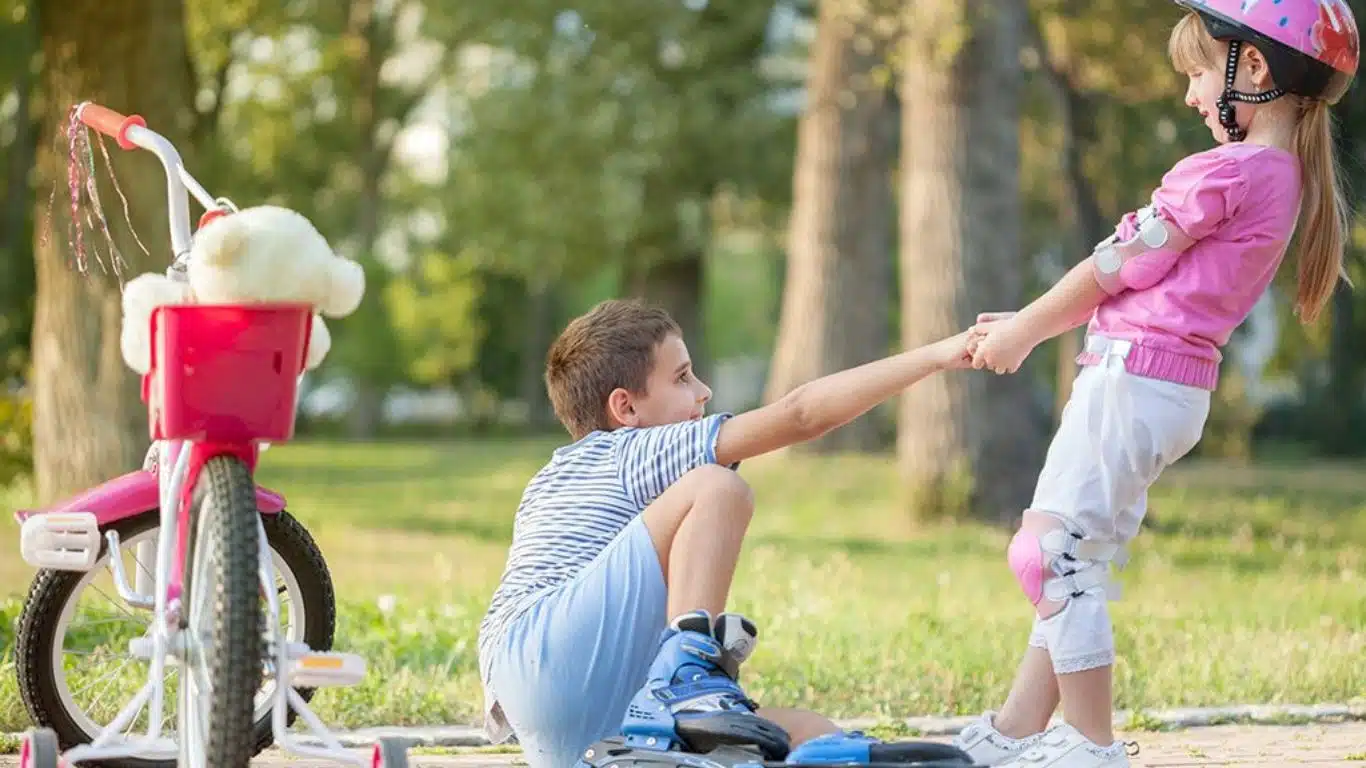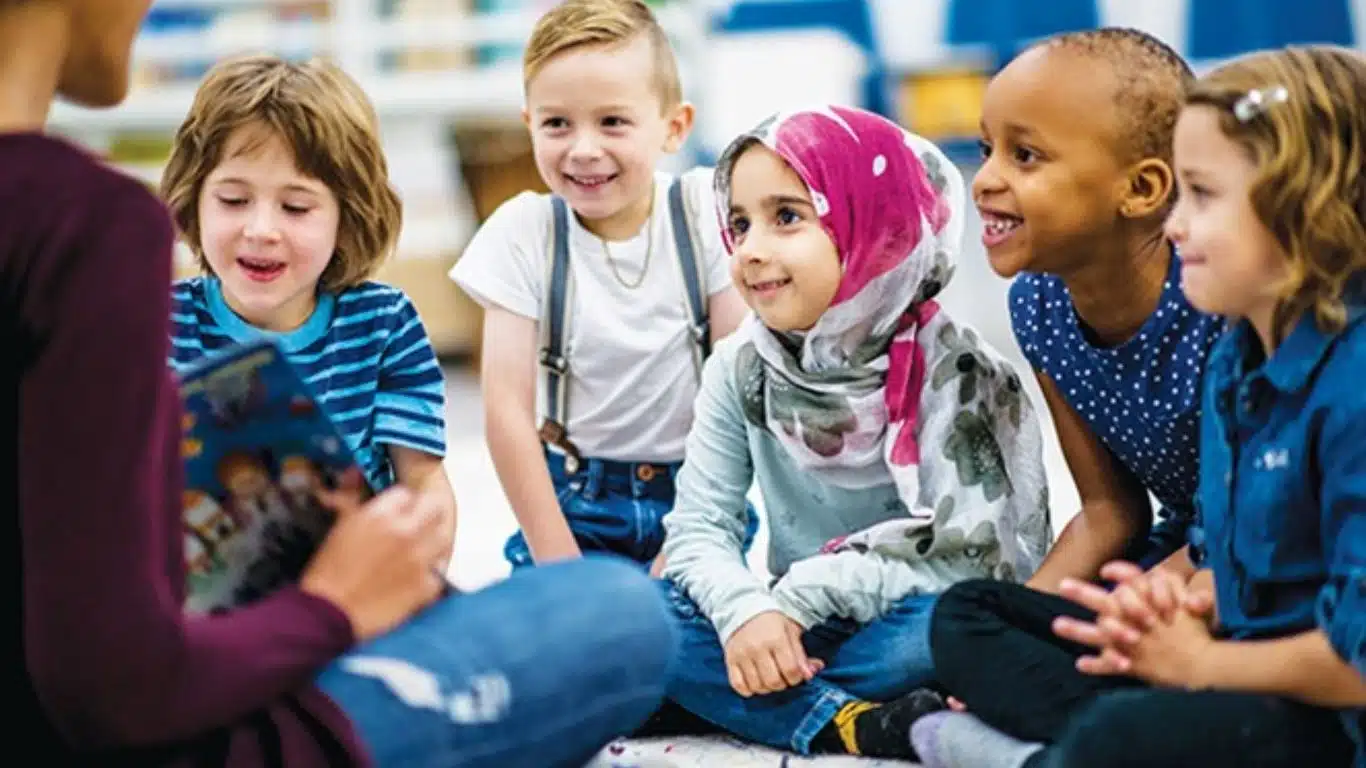- Your child will learn most effectively by observing your respectful interaction with others.
- Developing empathy in children helps them build deeper connections, boosts their emotional intelligence, and shapes them…
- Encourage your child to express their feelings and acknowledge them.
- Praise your child when they demonstrate responsibility.
- Encourage empathy and kindness, teaching them to care for others and show compassion.
- Educating children about generosity helps them develop empathy, gratitude, and a sense of interconnectedness with the wo…
In a world that is rapidly changing, instilling solid moral values in our children has never been more crucial. These values serve as guiding lights, helping our young ones navigate life’s complexities while contributing positively to society. They equip children with the necessary tools to make ethical decisions, display compassion, and foster healthy relationships. Lets delve into the essence of moral upbringing, showcasing 15 moral values every parent should teach their Kids. These principles are not only fundamental to their personal growth but also pivotal in shaping them into responsible and empathetic adults.
15 Moral Values Every Parent Should Teach Their Kids
Respect

At the heart of harmonious social interactions lies a fundamental value – respect. It encompasses understanding and accepting differences, acknowledging the feelings of others, and honoring personal boundaries. When children learn respect, they develop a deep sense of regard for themselves, others, and the world around them. Teaching respect begins at home, through simple actions and conversations.
For starters, model respectful behavior by treating everyone kindly and fairly, including your children. Reinforce the importance of using polite language and listening to others attentively. Encourage them to appreciate diversity and help them understand that every individual, regardless of their background or beliefs, deserves respect. Equally important is teaching them to respect their environment, including their possessions and nature.
Honesty

Truthfulness is a cornerstone of all healthy relationships. It builds trust, enhances self-esteem, and encourages a transparent, open society. Children who understand the value of honesty are more likely to develop integrity and demonstrate accountability in their actions. Cultivating honesty in your child’s heart is a rewarding task.
Begin by setting a good example – let your actions reflect your words, demonstrating the importance of truthfulness. Praise your child when they tell the truth, especially when it’s difficult. Make sure your home environment encourages open conversations, letting children express their feelings without fear. Discuss moral dilemmas in Stories or movies and talk about the implications of dishonest actions.
Kindness

Compassion and understanding are the essence of kindness. It involves extending goodwill towards others, offering help without expecting anything in return, and celebrating the success of others as much as our own. When children imbibe kindness, they cultivate stronger relationships, increased happiness, and a more fulfilling life. Instilling kindness in children starts with modeling this behavior yourself.
Show them how small acts of consideration, like sharing a toy or helping a friend, make a difference. Encourage empathy by discussing others’ feelings and perspectives, and acknowledge your child’s kind acts to reinforce this behavior. Create opportunities for acts of kindness through volunteering or simple home tasks. Emphasize that kindness is not just about actions towards others, but also about being kind to oneself.
Tolerance

In a diverse world, tolerance is a necessity. It involves recognizing and accepting differences, whether they pertain to race, religion, opinions, or lifestyles. Teaching our children tolerance fosters a sense of unity and understanding, equipping them to engage harmoniously in a multicultural society. To nurture tolerance, encourage your child to learn about different cultures, traditions, and ways of life.
Openly discuss differences and similarities among people, and express acceptance and respect for all. You can use Books, movies, and real-life examples to illustrate the importance of tolerance. Counter stereotypes and prejudiced comments promptly and explain why they are hurtful. Above all, let your behavior exemplify tolerance. Your child will learn most effectively by observing your respectful interaction with others.
Empathy

The ability to understand and share the feelings of others. It’s like stepping into another’s shoes, seeing the world through their eyes. Developing empathy in children helps them build deeper connections, boosts their emotional intelligence, and shapes them into compassionate individuals. Nurturing empathy can begin with simple steps. Encourage your child to express their feelings and acknowledge them.
Discuss various scenarios and ask how other people might feel in these situations. Storytelling is another powerful tool to illustrate empathy; characters in books can show diverse perspectives and emotional responses. Teach your child to listen actively and respond with care. Moreover, model empathetic behavior yourself, showing kindness and understanding to others.
Responsibility

The key trait that signifies the ability to take ownership of one’s actions and decisions. It forms the basis for trust and accountability. When children learn responsibility, they are more likely to become dependable, develop self-esteem, and gain independence. Introducing responsibility to children can be a rewarding journey. Start with simple tasks at home, like cleaning their rooms or feeding a pet.
Gradually increase the complexity of tasks as they grow older. Always make it clear that mistakes are part of learning, and it’s important to accept and learn from them, rather than avoid them. Praise your child when they demonstrate responsibility. Above all, exemplify responsible behavior in your actions, because children often learn more from what they see than what they’re told.
Patience

The ability to endure delays, difficulties, or discomfort without becoming agitated or upset. It is a crucial life skill that teaches children to wait calmly and tolerate frustration, helping them manage their emotions effectively. To help your child cultivate patience, start by setting a good example. Exhibit patience in your own actions and decision-making processes.
Create situations where patience is needed – it could be as simple as waiting for their turn to play a game or standing in a queue. Practice mindfulness activities, like deep breathing or quiet time, which can help improve patience. Acknowledge and praise your child’s display of patience. Above all, remind them that it’s okay if things don’t happen right away, and that patience often leads to better outcomes.
Fairness

Treating everyone equally, without favoritism or discrimination. It’s about making decisions based on principles of justice and equality. Imbibing a sense of fairness in children helps them develop respect for rules and enhances their social interactions. To promote fairness in your child’s behavior, set clear expectations and consistent rules at home.
Explain that rules apply to everyone and the consequences of breaking them are the same for all. Encourage sharing and taking turns among siblings or friends. Use stories or real-life situations to explain the concept of fairness. When disputes arise, help your child to understand each party’s point of view and find a fair resolution. Importantly, model fairness in your actions.
Cooperation

The art of cooperation involves working together towards a common goal. It helps children develop essential skills such as communication, problem-solving, and empathy. Cooperation teaches them to value teamwork, creating a foundation for fruitful collaborations in the future. To instill cooperation in your child, engage them in group activities that require team effort. It could be a family project, a group game, or a community event.
When conflicts arise, guide them to negotiate and find a solution that benefits everyone. Teach them the importance of active listening and effective communication. Regularly express appreciation when they demonstrate cooperative behavior. Above all, exemplify cooperation in your actions and interactions, showing your child that joint efforts often lead to superior results.
Self-Discipline

The ability to control one’s feelings, behaviors, and impulses to achieve long-term goals. It’s a vital life skill that encourages focus, resilience, and personal growth. Children with self-discipline are better equipped to face challenges and make responsible decisions. Encouraging self-discipline in your child starts with setting clear rules and consequences. Help them set achievable goals and devise step-by-step plans to reach them.
Teach them the importance of routine and the value of time management. Encourage them to practice patience and persistence in the face of challenges. Celebrate their achievements, but also teach them to find lessons in failures. Remember to model self-discipline in your own life, demonstrating that self-control is key to success.
Courage

The strength to face fear, pain, or challenges with determination and bravery. It’s not just about heroic acts but also about standing up for what’s right, trying new things, and persisting in the face of adversity. Cultivating courage in children helps them tackle life’s obstacles head-on and fosters resilience. Building courage in your child involves encouraging them to step out of their comfort zone.
Support them when they want to try new activities or face their fears. Discuss stories or real-life examples of courage to inspire them. Encourage them to stand up against injustice, even if they stand alone. Most importantly, let them know that it’s okay to make mistakes and fail. The aim is to grow stronger and learn from these experiences.
Perseverance

The ability to keep going in the face of setbacks and difficulties. It’s the commitment to persist with a task or goal, even when it’s challenging. Teaching perseverance to children equips them with resilience, enhances problem-solving skills, and fosters a growth mindset. To cultivate perseverance, encourage your child to set realistic goals and break them down into manageable steps.
Help them understand that setbacks and struggles are part of the process, not the end of it. Celebrate their effort and progress, not just the final outcome. Use stories or examples of people who achieved success through perseverance. Most importantly, model perseverance in your actions, showing that determination and tenacity are vital to accomplishing any task.
Love

The powerful force that nourishes the human spirit and forms the foundation of meaningful connections. It is crucial for children to understand the importance of love, as it shapes their emotional well-being, builds trust, and fosters healthy relationships. Teaching children about love starts with creating a loving and nurturing environment at home.
Show them affection, express your love through words and actions, and be emotionally available. Encourage empathy and kindness, teaching them to care for others and show compassion. Help them understand the importance of self-love and self-care, emphasizing that they deserve love and respect from themselves and others. Read books or share stories that highlight love and its transformative power.
Generosity

The quality of being open-hearted and giving freely to others. It goes beyond material possessions and encompasses acts of kindness, compassion, and selflessness. Educating children about generosity helps them develop empathy, gratitude, and a sense of interconnectedness with the world around them. To foster generosity in children, encourage them to share their resources, whether it’s toys, snacks, or time.
Engage in volunteer activities as a family to expose them to the joy of helping others. Discuss the importance of giving back to the community and supporting those in need. Encourage acts of kindness, such as writing thank-you notes or performing small acts of service. Model generosity in your own behavior, showing them the impact of generosity on others and how it can create a ripple effect of kindness.
Gratitude

The practice of recognizing and appreciating the positive aspects of life, acknowledging the kindness and blessings we receive. It involves cultivating a mindset of thankfulness and recognizing the value of what we have, rather than focusing on what is lacking. To encourage gratitude in children, lead by example and express gratitude yourself.
Teach them to say “thank you” for acts of kindness and to appreciate the efforts of others. Encourage them to keep a gratitude journal, where they can write down things they are grateful for each day. Engage in conversations about gratitude during family meals or bedtime, asking them to share what they are thankful for. Encourage acts of kindness and giving back, as experiencing the joy of helping others can cultivate gratitude.
Also Read: How Educational Games Shape Children’s Learning?



